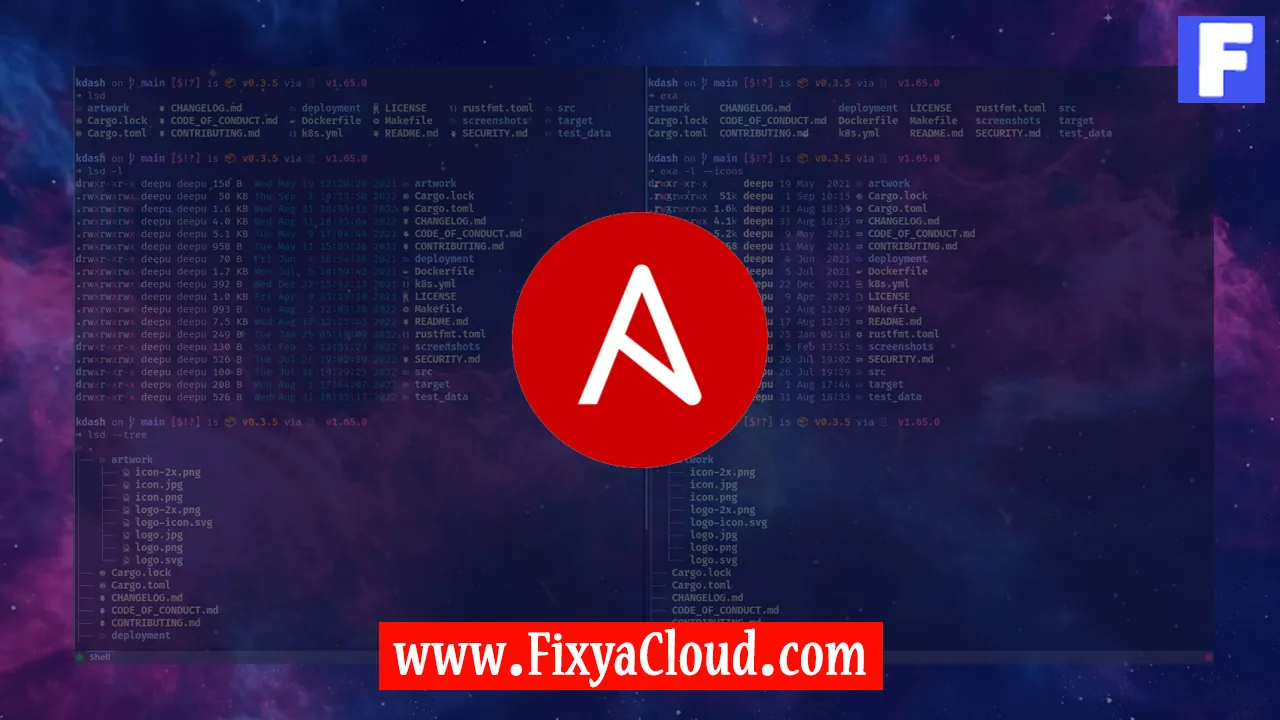8 Powerful Use Cases for Ansible Playbooks in DevOps

In the dynamic landscape of DevOps, automation is the key to streamlining processes and achieving efficiency. Ansible, an open-source automation tool, has gained immense popularity for its simplicity and flexibility. One of its standout features is the use of playbooks, which are scripts written in YAML that define a set of tasks to be executed. In this article, we will explore eight powerful use cases for Ansible playbooks in DevOps, showcasing the versatility and impact this tool can have on your development and operations workflows.
- Infrastructure as Code (IaC):
Ansible playbooks shine in the realm of Infrastructure as Code, allowing you to define and manage your infrastructure in a version-controlled and repeatable manner. With a simple playbook, you can provision and configure servers, ensuring consistency across development, testing, and production environments.
---
- name: Provision and Configure Web Servers
hosts: webservers
tasks:
- name: Install Apache
yum:
name: httpd
state: present
- name: Start Apache Service
service:
name: httpd
state: started
- Configuration Management:
Managing configurations across a fleet of servers can be challenging. Ansible playbooks provide a solution by allowing you to define and enforce configurations, ensuring that systems remain in the desired state. This is particularly useful for maintaining consistency and security across your infrastructure.
---
- name: Configure NTP Servers
hosts: all
tasks:
- name: Install NTP
yum:
name: ntp
state: present
- name: Set NTP Servers
lineinfile:
path: /etc/ntp.conf
line: 'server time.example.com'
- Continuous Integration and Continuous Deployment (CI/CD):
Integrating Ansible playbooks into your CI/CD pipeline can automate the deployment process, ensuring fast and reliable delivery of applications. Playbooks can be triggered automatically, allowing for consistent and repeatable deployments across various environments.
---
- name: Deploy Application
hosts: webserver
tasks:
- name: Copy Application Code
copy:
src: /path/to/app
dest: /var/www/html/
- name: Restart Apache
service:
name: httpd
state: restarted
- Security Compliance:
Ensuring security compliance is a critical aspect of DevOps. Ansible playbooks can be utilized to enforce security policies and configurations across servers, helping you maintain a secure infrastructure.
---
- name: Harden Server Security
hosts: all
tasks:
- name: Set Password Policy
pam_pwquality:
name: password-auth
minlen: 14
dcredit: -1
ucredit: -1
- Database Management:
Managing databases in a DevOps environment can be complex. Ansible playbooks simplify tasks such as database creation, user management, and schema updates, ensuring consistency across database instances.
---
- name: Configure MySQL Database
hosts: db_servers
tasks:
- name: Install MySQL Server
yum:
name: mysql-server
state: present
- name: Create Database
mysql_db:
name: mydatabase
state: present
- name: Create Database User
mysql_user:
name: db_user
password: securepassword
priv: 'mydatabase.*:ALL'
- Log Management:
Efficient log management is crucial for troubleshooting and monitoring. Ansible playbooks can automate the configuration of log forwarding, ensuring centralized logging for easy analysis.
---
- name: Configure Log Forwarding
hosts: all
tasks:
- name: Install and Configure Logstash
include_role:
name: logstash
- Scaling Infrastructure:
As your infrastructure grows, scaling becomes a necessity. Ansible playbooks facilitate the dynamic scaling of resources, allowing you to adapt to changing workloads seamlessly.
---
- name: Scale Web Servers
hosts: webservers
tasks:
- name: Add Web Server
ec2_instance:
key_name: mykey
instance_type: t2.micro
image_id: ami-12345678
count: 1
- Application Updates:
Keeping applications up-to-date is vital for performance and security. Ansible playbooks can automate the process of updating applications across multiple servers, ensuring a consistent and efficient update strategy.
---
- name: Update Application
hosts: app_servers
tasks:
- name: Update Application Code
git:
repo: https://github.com/example/app.git
dest: /opt/app
version: master
- name: Restart Application Service
service:
name: myapp
state: restarted
So, Ansible playbooks offer a powerful and flexible automation solution for a wide range of DevOps scenarios. From infrastructure provisioning to application updates, the versatility of Ansible playbooks makes them an invaluable asset for any DevOps team. By incorporating these playbooks into your workflows, you can achieve greater efficiency, consistency, and scalability in your development and operations processes.
Related Searches and Questions asked:
That's it for this topic, Hope this article is useful. Thanks for Visiting us.
